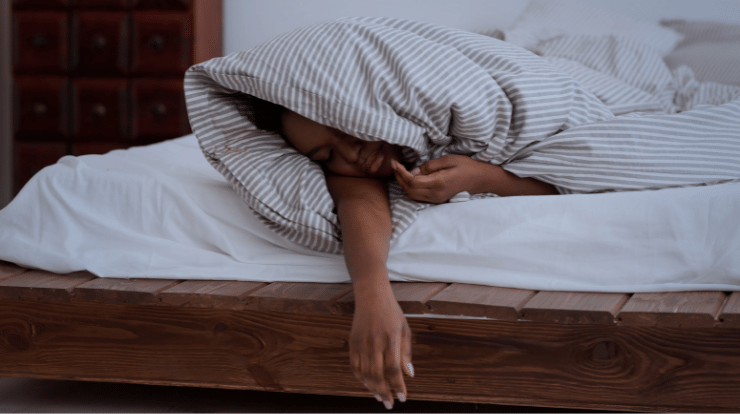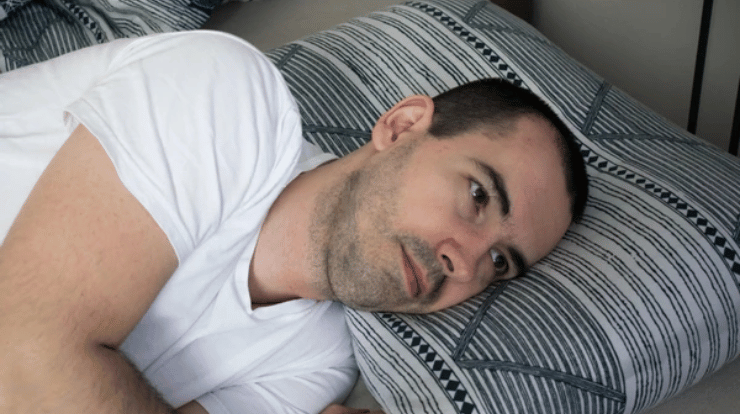
What is sleep paralysis?
Sleep paralysis is a condition that can occur when you are falling asleep or waking up. During an episode of sleep paralysis, you may feel like you cannot move or speak. You may also feel like there is someone or something in the room with you. Sleep paralysis can be a very frightening experience.
However, it is not harmful and usually goes away on its own within a few minutes. If you experience sleep paralysis often, it may be a sign of another sleep disorder, such as narcolepsy. Treatment for sleep paralysis usually focuses on managing any underlying sleep disorders.
Is sleep paralysis dangerous?
Sleep paralysis is a condition where people are unable to move or speak while falling asleep or upon waking up. Although it can be frightening, sleep paralysis is not dangerous.
There are two types of sleep paralysis:
- isolated sleep paralysis and recurrent isolated sleep paralysis. Isolated sleep paralysis is when a person only experiences sleep paralysis once or twice in their lifetime.
- Recurrent isolated sleep paralysis is when a person experiences sleep paralysis more than once.
How long does sleep paralysis last?
Sleep paralysis is a frightening experience that can leave you feeling helpless and alone. It usually happens when you are falling asleep or waking up, and it can last for a few seconds to a few minutes. During sleep paralysis, you may feel like you cannot move your arms or legs, and you may also feel pressure on your chest or throat. Some people report seeing or hearing things that are not really there.
Sleep paralysis symptoms
- The feeling of being paralyzed while you are asleep
- The feeling of being unable to move your body or speak
- The feeling of being trapped in your own body
- The feeling of an evil presence in the room with you
- The feeling of suffocation or choking
- Hallucinations or nightmares during sleep paralysis episodes
- The feeling of being terrified or panicked during sleep paralysis episodes
If you experience any of these sleep paralysis symptoms, it is important to see a doctor or sleep specialist to rule out any underlying medical conditions. Sleep paralysis can be a sign of narcolepsy, for example. Treatment for sleep paralysis may not be necessary if the episodes are infrequent and not disruptive to your life. However, if sleep paralysis is causing you distress or impacting your quality of life, there are treatments that can help.

What causes sleep paralysis?
The following are the causes of sleep paralysis:
- Sleep deprivation: not getting enough sleep can lead to sleep paralysis.
- Stress: high levels of stress can also trigger sleep paralysis.
- Sleep disorders: conditions like sleep apnea and narcolepsy can increase the risk of experiencing sleep paralysis.
- Use of certain drugs or medications: certain drugs like sedatives and antidepressants can cause sleep paralysis.
- Changes in sleeping patterns: disruptions in normal sleep patterns (for example, jet lag) can also bring on episodes of sleep paralysis.
Sleep paralysis is a condition that can be caused by several things. If you think you may be suffering from sleep paralysis, it’s important to see a doctor to rule out any underlying medical conditions. Once a cause is determined, there are treatments that can help to lessen the frequency and severity of episodes.
What are the Sleep paralysis treatments?
Many people have a question “How to avoid sleep paralysis?”
Following are the ways which can help you avoid sleep paralysis:
1) Keep a regular sleep schedule: go to bed and wake up at the same time every day, including on weekends. This will help regulate your body’s natural sleep rhythm.
2) Create a restful environment in your bedroom: make sure it is dark, quiet, and cool. Consider using an eye mask and earplugs to block out light and noise.
3) Avoid caffeine and alcohol before bed: these substances can interfere with sleep and increase the risk of sleep paralysis.
4) Get enough exercise: regular physical activity can help promote better sleep. However, avoid exercising too close to bedtime as this can make it difficult to fall asleep.
5) Practice relaxation techniques: things like yoga, meditation, and deep breathing can help you wind down and prepare for sleep.
Sleep paralysis can be a frightening experience, but there are steps you can take to reduce your risk of it happening. By following a healthy sleep routine and creating a relaxing environment in your bedroom, you can help ensure that you get the restful sleep you need. If you do experience sleep paralysis, try to stay calm and focus on your breath until it passes. Remember, it is not harmful and will eventually end. With these tips in mind, you can hopefully avoid any future episodes of sleep paralysis.
Is sleep paralysis genetic?
is sleep paralysis genetic? is an interesting question without a clear answer. Some people seem to be more prone to it than others, and it often seems to run in families. However, there is no definitive evidence that sleep paralysis is hereditary. It is possible that some people are simply more susceptible to the condition due to their physiology or neurobiology.
Additionally, stress and sleep deprivation can both increase the likelihood of experiencing sleep paralysis. So, while there may be a genetic component to sleep paralysis, it is not fully understood. Whatever the cause, it is clear that sleep paralysis can be a very frightening condition. Thankfully, it is usually only temporary and does not cause any long-term harm.
Can a normal person get sleep paralysis?
Yes, a normal person can get sleep paralysis. In fact, anyone can get sleep paralysis, including people who don’t have any other health conditions.
Can you talk during sleep paralysis?
Many people who experience sleep paralysis report being unable to move or talk during an episode. However, some people say that they are able to talk, although their speech may be slurred or strange sounding. It is also possible to scream or cry out during an episode of sleep paralysis, although this may not be loud enough to wake up. In some cases, people have been able to move their eyes or body during sleep paralysis, but this is usually only a small movement.






